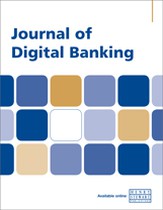Zooming in: The role of granular data in central banking
Abstract
Central banks are increasingly leveraging the vast amount of information available in modern societies. Granular datasets offer precision and insight that aggregation often masks, providing flexibility to address a broad spectrum of issues and enabling in-depth understanding of emerging behaviours for more targeted policy responses. Nevertheless, two important challenges persist: these datasets often lack the rigorous production processes and quality assessments of traditional macroeconomic statistics, and their value depends on coherent contextualisation within a policy framework. Fortunately, data science offers effective tools to tackle such issues. This paper describes how, in future, maximising granular data’s potential requires stringent security measures, quality assurance and transparent integration into policy making.
The full article is available to subscribers to the journal.
Author's Biography
Joshua Brault is a Senior Data Scientist at the Bank of Canada. His research focuses on the intersection of data and macroeconomic modelling, with particular interests in business cycles, monetary policy and quantitative methods. Joshua Brault earned his PhD in Economics from Carleton University and subsequently awarded a post-doctoral fellowship at the Université du Québec à Montréal.
Maryam Haghighi is the Director of Enterprise Data Science and Insights at the Bank of Canada, where she leads the strategic initiatives in artificial intelligence, advanced analytics, and quantum technologies. A recognised leader in digital innovation, she founded the Bank’s first Data Science Hub, architected its Quantum Strategy, developed AI governance frameworks and spearheaded the cross-functional rollout of digital capabilities. Her thought leadership spans scholarly contributions on AI and digital transformation, and she has served on international advisory panels under the United Nations. Prior to her current role, she directed major data initiatives across the Canadian public sector. Maryam holds a PhD in Mathematics from the University of Ottawa and is a Chartered Director. Her work has earned multiple accolades, including the University of Ottawa’s Faculty of Science Alumni of the Year Award (2022), the Governor’s Award of Excellence (2023) and the Gil Bennet Award from the DeGroote School of Business (2024). She integrates science, policy and financial system resilience to advance responsible innovation in regulated environments.
Bruno Tissot serves as the Head of Statistics and Research Support at the Bank for International Settlements (BIS) and leads the Secretariat of the Irving Fisher Committee on Central Bank Statistics (IFC). He also represents the BIS on the Statistical Data and Metadata Exchange (SDMX) Sponsors’ Committee and chairs the international Working Group on Securities Databases (WGSD). Since joining the BIS in 2001, Tissot held several key roles, including Senior Economist, Secretary to the Markets Committee of Central Banks and, later, Adviser to the General Manager and Secretary to the BIS Executive Committee. Prior to his tenure at BIS, he worked at the French Ministry of Finance from 1994 to 2001. He is a graduate of École Polytechnique (Paris) and the French Statistical Office (Institut National de la Statistique et des Études Économiques [INSEE]).
